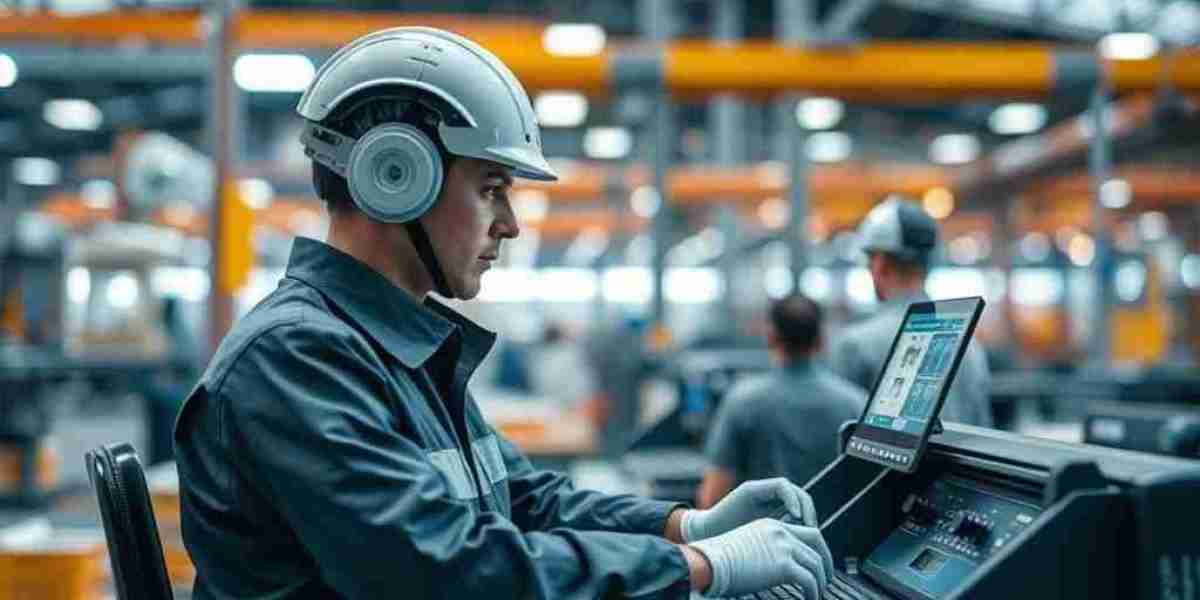Introduction: The Pace of Modern Manufacturing
Manufacturing is evolving at an unprecedented rate. The push toward Industry 4.0 has brought automation, IoT integration, real-time analytics, and supply chain digitization to the forefront. While these advancements have made factories more productive, they have also created a new challenge: managing the vast amount of operational queries that arise daily.
Operations teams in manufacturing facilities deal with a constant flow of questions from production staff, suppliers, quality assurance teams, logistics coordinators, and management. These queries can range from machine maintenance schedules to supply chain updates and compliance regulations. Traditionally, answering them required significant human time and effort, often leading to delays, inefficiencies, and communication breakdowns.
Enter AI copilot development solutions — intelligent systems designed to respond to these operational queries instantly, accurately, and consistently. By implementing such technology, manufacturers can dramatically reduce downtime, improve coordination, and ensure smoother workflows across all departments.
Understanding the Nature of Operations Queries in Manufacturing
Manufacturing environments are complex ecosystems. At any given time, multiple processes run in parallel, and each one generates its own stream of questions. These queries typically come from three main sources:
Queries from the Production Floor
What is the status of the next batch of raw materials?
When is the next scheduled maintenance for this machine?
Are there any quality issues reported for this product run?
Can we adjust the production schedule to meet a rush order?
Queries from Suppliers and Partners
Can you confirm the purchase order details for the upcoming delivery?
What are the updated production forecasts for next quarter?
Have there been any changes to compliance or safety requirements?
Queries from Management and Other Departments
What is the current production output rate?
How is machine utilization trending compared to last month?
Are there any bottlenecks in the workflow that need urgent attention?
While each of these questions may seem straightforward, answering them often requires accessing different systems, cross-referencing data, and consulting multiple people. This is where AI copilot development services offer a transformative advantage.
How AI Copilot Solutions Streamline Operations Queries
An AI copilot acts as an intelligent assistant integrated into the manufacturing ecosystem. It connects to ERP systems, production monitoring software, supply chain management tools, and maintenance logs to gather real-time data. The AI can then provide instant responses to operational queries, whether they come from the shop floor, suppliers, or management.
Some of the ways an AI copilot can improve operations queries include:
Instant Access to Real-Time Data
Instead of waiting for someone to check a system manually, the AI retrieves live information in seconds. This includes production rates, inventory levels, quality inspection results, and shipment statuses.
Automated Maintenance Schedules
The AI can provide quick answers about upcoming maintenance, machine downtime forecasts, and historical repair data, allowing production teams to plan better and minimize disruptions.
Supplier Communication Automation
Suppliers can query the AI directly for purchase order confirmations, delivery schedules, and updated demand forecasts, eliminating email delays and miscommunication.
Quality Assurance Support
When a defect is detected, the AI can instantly provide details about the affected batch, production times, and potential causes, enabling faster corrective action.
The Role of an AI Copilot Development Company
To implement AI in manufacturing operations effectively, companies need the expertise of an experienced AI copilot development company. These specialists design, customize, and integrate AI systems tailored to the unique needs of manufacturing environments.
A development company ensures that:
The AI is trained on industry-specific terminology and workflows.
The system integrates seamlessly with existing ERP, MES, and SCM platforms.
Security protocols are in place to protect sensitive operational data.
Continuous AI copilot development services are available to keep the system updated.
Benefits of AI Copilot Development Solutions in Manufacturing
Reduced Downtime
By answering maintenance-related queries instantly and proactively flagging issues, AI helps prevent unplanned downtime.
Increased Operational Speed
Questions that once took hours to resolve can now be answered in seconds, keeping operations running smoothly.
Enhanced Accuracy
Since the AI pulls information directly from official data sources, it reduces the risk of human error in reporting.
Better Resource Allocation
Managers can focus on decision-making rather than spending time tracking down routine information.
Improved Supplier Relationships
Fast and accurate responses improve communication and trust between manufacturers and their supply chain partners.
Implementation Process for AI Copilot in Manufacturing
When working with an AI copilot development company, the typical implementation process includes:
Assessment and Requirement Gathering
Identify the most common and high-priority operational queries.System Integration
Connect the AI to production monitoring systems, ERP platforms, supply chain tools, and quality management software.AI Training
Use historical query data, manufacturing terminology, and process documentation to teach the AI how to respond accurately.Pilot Testing
Deploy the AI in a limited scope to ensure it provides correct and useful answers.Full Rollout and Support
Expand to all operational areas and maintain performance through ongoing AI copilot development services.
Real-World Example: AI Copilot in a Mid-Sized Factory
Consider a mid-sized automotive parts manufacturer facing daily production bottlenecks due to slow communication between departments. Before adopting AI copilot development solutions, machine operators had to request updates on material deliveries from supervisors, who would then email the procurement team, causing delays.
After implementation:
Operators now ask the AI directly for material status updates.
Procurement queries the AI for production forecasts before placing orders.
Maintenance teams receive automated alerts about upcoming servicing.
Management gets instant access to performance dashboards.
Within six months, operational query resolution time dropped by 65%, and production downtime decreased by 18%.
Future Trends: AI’s Growing Role in Manufacturing Operations
The capabilities of AI copilots will expand further with advancements in predictive analytics, IoT integration, and machine learning. Some emerging trends include:
Predictive query responses that anticipate questions before they’re asked.
Voice-enabled AI assistants for hands-free query handling on the shop floor.
Automated workflow adjustments based on real-time query patterns.
AI-driven supplier negotiation tools for faster procurement decisions.
These advancements will make AI copilot development solutions even more valuable for manufacturers striving for leaner, more responsive operations.
Security and Compliance in AI-Powered Query Handling
In manufacturing, operational data often includes sensitive supplier contracts, production formulas, and regulatory compliance information. Any AI implementation must prioritize:
Encryption for all communications.
Strict role-based access controls.
Compliance with industry-specific regulations, such as ISO standards.
Detailed logging of AI interactions for auditing purposes.
An AI copilot development company ensures these security features are embedded from the start.
The Competitive Advantage
Manufacturers that adopt AI copilot development services gain a competitive edge by making their operations more agile and responsive. Faster query resolution means less downtime, better supplier collaboration, and improved production efficiency — all of which contribute to higher profitability.
In industries where margins are tight and customer expectations are high, even small efficiency gains can make a big difference. AI copilots offer a scalable, cost-effective way to achieve these gains without overburdening staff.
Conclusion
Operations queries in manufacturing may seem like small interruptions, but collectively they can have a significant impact on productivity. By implementing AI copilot development solutions, manufacturers can automate query handling, ensure accurate and consistent information flow, and empower teams to focus on higher-value tasks.
Partnering with an experienced AI copilot development company ensures the technology is tailored to the specific needs of the manufacturing environment and backed by reliable AI copilot development services for continuous improvement.













